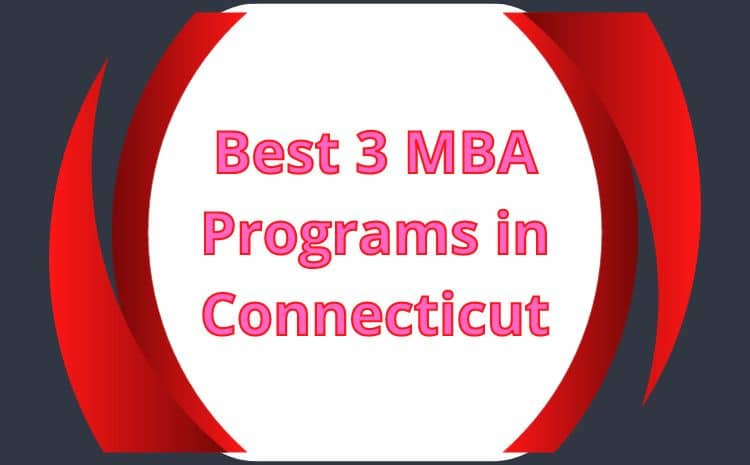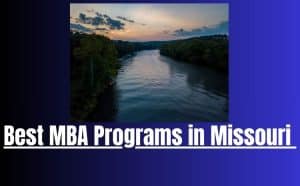
Connecticut boasts a range of prestigious institutions that offer exceptional MBA programs. These courses are designed to equip students with deep understanding of business tactics, leadership principles, and managerial expertise, ensuring they are adept at maneuvering through the ever-changing business landscape.
If you’re thinking about pursuing an MBA, check out our top recommendations for MBA programs in Connecticut.
Top MBA Programs in Connecticut
As the business world evolves, the demand for adept Business administrators and leaders have increased exponentially. To cater to this need, the state is home to several prestigious MBA programs that promise not just a degree, but an immersive learning experience.
Dive in as we explore the crème de la crème of MBA programs in Connecticut, designed to mold the business leaders of tomorrow.
Yale School of Management – Yale University
Founded in 1976, the Yale School of Management (SOM) is the graduate business school of Yale
University in New Haven, Connecticut. The school has gradually expanded its array of business-related studies and now offers a comprehensive list of programs, including MBA, Executive MBA, MMS, and PhD programs.
Famous Alumni
- Indra Nooyi, former Chairman and CEO of PepsiCo.
- Janet Yellen, former Chair of the Federal Reserve and the current U.S. Secretary of the Treasury.
- Sonal Shah, economist, and founding Executive Director of the Beeck Center for Social Impact PLUS Innovation at Georgetown University.
Rankings
Yale SOM (School of Management) has consistently been ranked among the top business schools
globally. While rankings can vary from year to year and among different publications, the school is frequently placed in the top 20 globally for its MBA program by prominent rankings like the Financial Times, U.S. News & World Report.
According to US News & World Report, Yale University is ranked No. 8 in Best Business Schools for for the 2023-2024 Academic Session.
UConn School of Business – University of Connecticut
Established in 1941, the University of Connecticut (UConn) School of Business has grown to be a
leading business institution in the region and country. With campuses in Storrs, Hartford, Stamford, and Waterbury, the school offers a wide array of undergraduate, graduate, and PhD programs.
Famous Alumni
- John Kim, former President of New York Life Insurance Company.
- Timothy Armstrong, former CEO of Oath Inc. and former Chairman & CEO of AOL.
Rankings
The UConn School of Business is nationally recognized, and its programs are often ranked among the
top business schools in the United States, especially its insurance/risk management and real estate
programs. Its MBA program also has been acknowledged in top business school rankings by U.S. News & World Report.
U.S. News & World Report reportedly rank the University of Connecticut business school as the No. 93 in Best Business Schools and No. 37 in Part-time MBA.
Charles F. Dolan School of Business – Fairfield University
Located in Fairfield, Connecticut, the Charles F. Dolan School of Business is a part of Fairfield
University. The business school was named after Charles F. Dolan, the founder of Cablevision and HBO. Over the years, the school has established a reputation for excellence in business education,
emphasizing ethical understanding alongside traditional business training.
Rankings
The Dolan School of Business consistently ranks well regionally and is often recognized for its
commitment to ethics in business. While it might not appear as frequently in the top global rankings as Yale or UConn, it is respected for its quality education and the value it provides to its students.
According to US news and report, for the 2023-2024 rankings, Fairfield University (Dolan) is
Unranked in Best Business Schools and No. 76 in Part-time MBA.
Curriculum
The curriculum of Connecticut’s MBA programs covers essential business components like Finance,
Leadership, Strategy, and Operations.
The learning approach is diverse, incorporating case studies, group discussions, and practical
experiences to cultivate critical thinking, managerial skills, and ethical decision-making.
Admission Essentials
To secure admission in these premium MBA programs, aspirants need to fulfill several prerequisites,
including:
- A completed application form.
- An undergraduate degree from an accredited university.
- GMAT or GRE scores.
- Letters of recommendation.
- A Statement of Purpose – Outlining professional goals and motivations for pursuing an MBA.
Career Prospects and Compensation Overview
Graduates from Connecticut’s MBA programs enjoy extensive career opportunities in sectors like
Finance, Consulting, Technology, and Healthcare. Potential roles include Project Manager, Financial Analyst, and Business Consultant.
The average annual salaries for MBA graduates in Connecticut range from $70,000 to $130,000,
depending on the role, industry, and experience.
Scholarship and Financial Aid Options
Prospective students can avail themselves of various financial aid options and scholarship
opportunities provided by Connecticut institutions. These financial support systems include merit-based scholarships, grants, and loan facilities, aimed at ensuring accessibility and affordability of quality education.
Accreditation and Institutional Prestige
Accreditation by AACSB International affirms the excellence and quality of the MBA programs in
Connecticut. It underscores the institutions’ commitment to maintaining high educational standards and continuous improvement.
Conclusion MBA Programs in Connecticut
Pursuing an MBA in Connecticut offers students a transformative learning experience, instilling in
them the essential skills and knowledge needed to excel in the competitive business landscape.
With a rich curriculum, exceptional faculty, state-of-the-art facilities, and supportive academic
community, Business schools in Connecticut emerge as an ideal location for aspiring MBA candidates.
Enrolling in MBA programs in Connecticut is not merely a choice for academic advancement; it also represents a pathway to professional success. Such programs empower graduates to forge significant inroads in the business world and positively influence the broader community.





